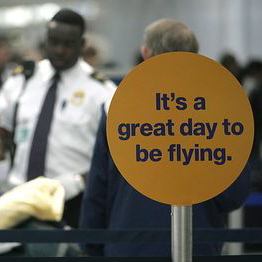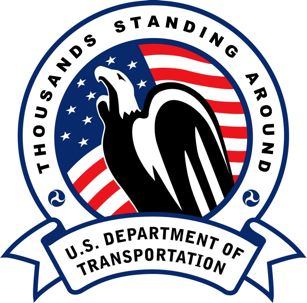Additional TSA Security Measures: Progressive or Oppressive?
 The Transportation Security Administration (TSA) is planning to add two new levels of security to its already strict air travel regimen, a move that may leave many travelers grumbling.
The Transportation Security Administration (TSA) is planning to add two new levels of security to its already strict air travel regimen, a move that may leave many travelers grumbling.
Not only is the TSA planning to increase searches of passengers just prior to boarding planes, but soon passengers will also be required to supply their birth date and gender when making airline reservations.
USA Today obtained a memo from inside the TSA that shows that more passengers will be pulled out of line and subjected to additional searches as they wait to board planes. People will be chosen both at random and for displaying suspicious behavior, though the memo does not specify what constitutes “suspicious.”
The memo also gave no timeline for implementation of the stepped-up effort, which will supposedly target only “riskier” flights. The TSA says that the program was not created in response to any specific threat, but simply makes security less predictable to potential terrorists who may be monitoring airports.
Considering that airport workers are not screened as tightly as passengers, one aviation security consultant believes the plan may also be a way to guard against the possibility of airline employees passing weapons to passengers in secure areas of airports.
The move represents something of a step back for the TSA, which has been progressively streamlining and speeding up its security procedures since the turbulent months after September 11.
 Gate screening was done extensively until 2003, when it was scaled back to minimal levels. With its planned resurgence, many fear that more flights will be delayed and passengers will begin feeling hassled again.
Gate screening was done extensively until 2003, when it was scaled back to minimal levels. With its planned resurgence, many fear that more flights will be delayed and passengers will begin feeling hassled again.
Another program that the TSA is rolling out may also seem questionable, but may actually make life easier for people who have the misfortune of sharing a name with a potential terrorist.
Dubbed “Secure Flight,” the new program will require anyone who buys a plane ticket to give their birth date and gender along with their name when they make a reservation. The information will then be cross-referenced against various government “watch lists” of potential terrorists, and only people who don’t match will be cleared to fly.
Authorities claim the new procedure will improve the quality of the “no fly” list and prevent misidentifications from occurring. Previously the list only contained first and last names of hundreds of thousands of people whom the government deemed “suspicious,” resulting in sometimes ridiculous cases of misidentification when passengers sharing the same name would try to board planes.
Babies as young as one year, elderly people—even Senator Ted Kennedy—have been repeatedly denied boarding and detained by security officials because their names matched a name on the list. With more pieces of distinguishing information, the TSA hopes to prevent this from being such a common occurrence going forward.
Despite the program’s potential advantages for this group of passengers, many groups oppose the plan, saying that it infringes on passenger privacy and will not do much to reduce the threat of terrorism.
The Cyber Privacy Project believes that the program gives the government an unacceptable level of control over travel, since the TSA in effect “checks out” passengers before they fly and can deny them permission to fly if it so wishes. The organization also fears that the program could eventually be extended to buses and trains.
Other groups think that the program, which has so far cost $322 million to launch, is simply ineffective and a waste of money. They believe that more effective police work and intelligence would go further toward protecting the U.S. from terrorists than scrutinizing millions of average travelers.
By Karen Elowitt for PeterGreenberg.com.
Related links: Los Angeles Times, USA Today
Related links on PeterGreenberg.com:












